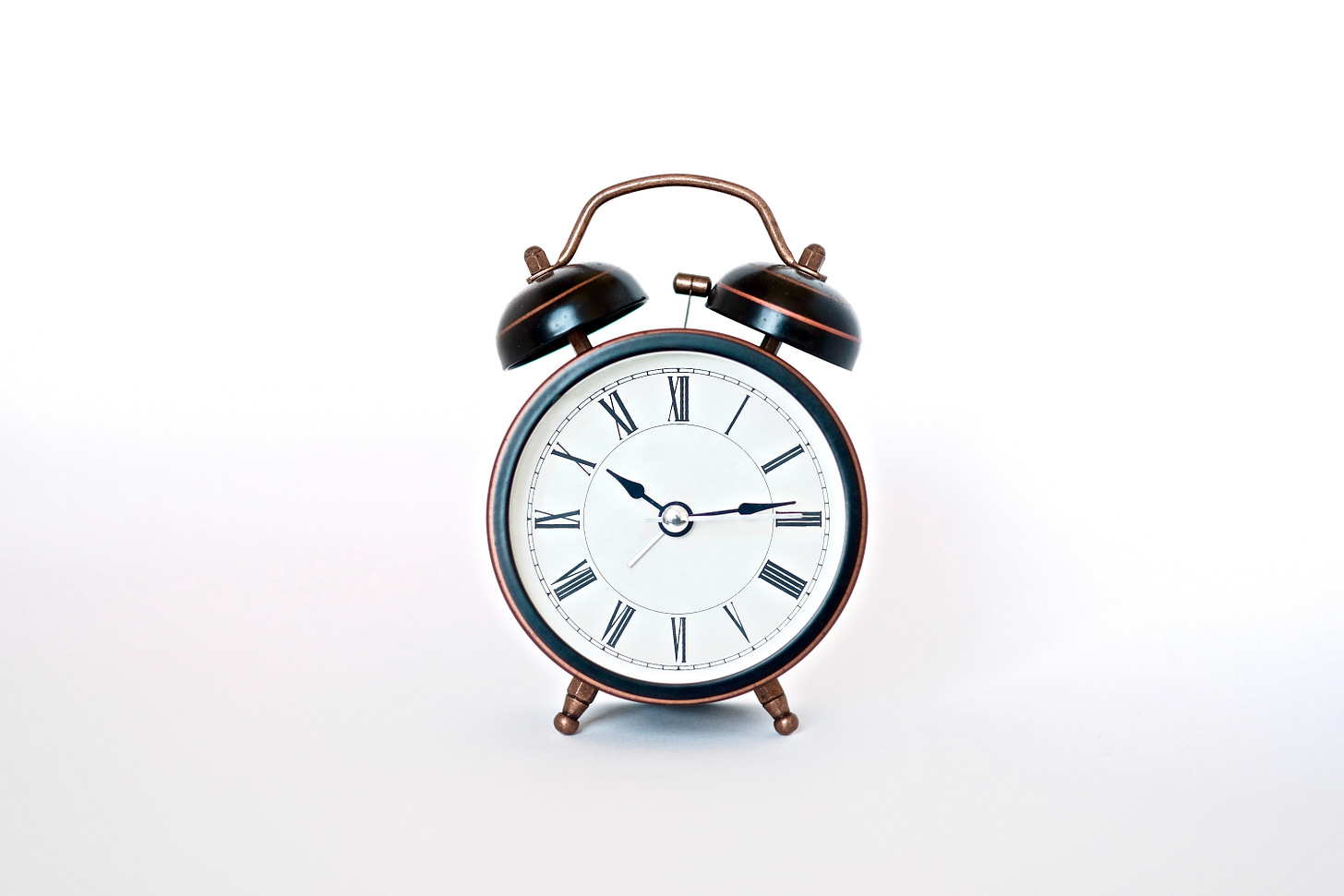The Bedtime Alarm: A Simple Strategy for Better Sleep
Here's how to feel energetic, wide-awake, and alert all day

Imagine that you saw an advertisement that looked like this:
INCREDIBLE BREAKTHROUGH!
Scientists have discovered a new treatment that makes you live longer. It improves your memory and creativity. It makes you more attractive. It lowers sugar cravings and keeps you slim. It protects you from colds, the flu, diabetes, dementia and cancer. It decreases the risk of heart attacks and strokes. It even makes you feel happier. And it’s free!
Would you be interested?
Of course you would, right? And, as it turns out, this treatment is readily available to you. It’s called sufficient sleep.
According to leading sleep researcher Matthew Walker, nothing in this made-up advertisement would be inaccurate. All the benefits listed have been well documented in over 17,000 scientific reports.
If you want to feel great and perform at your best, you need to get sufficient sleep. For the vast majority of people, that means 7-9 hours per night.
There are people who can get by on less, but they are very few. In fact, it’s far more likely to be struck by lightning than it is to survive on insufficient sleep thanks to a rare gene.
Research shows we’re terrible at noticing our performance decline when we’re sleep deprived. So, if you think you need less than 7 hours per night, you’ve probably just gotten used to being sluggish.
Matthew Walker’s number one piece of advice for getting healthy sleep is to stick to a sleep schedule. Human beings are creatures of habit, and we have a hard time adjusting to irregular sleep patterns.
So, count backward from the time you’ll get up and set a bedtime alarm 7-9 hours before that. Make sure to include time for winding down in bed.
You’ll know you’re getting sufficient sleep when you feel energetic, wide-awake, and alert all day. And when you do, everything else will be so much easier. :)


